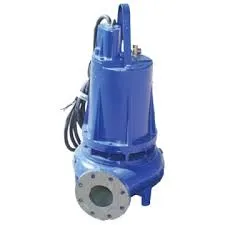Turkish
- Afrikaans
- Albanian
- Amharic
- Arabic
- Armenian
- Azerbaijani
- Basque
- Belarusian
- Bengali
- Bosnian
- Bulgarian
- Catalan
- Cebuano
- Corsican
- Croatian
- Czech
- Danish
- Dutch
- English
- Esperanto
- Estonian
- Finnish
- French
- Frisian
- Galician
- Georgian
- German
- Greek
- Gujarati
- Haitian Creole
- hausa
- hawaiian
- Hebrew
- Hindi
- Miao
- Hungarian
- Icelandic
- igbo
- Indonesian
- irish
- Italian
- Japanese
- Javanese
- Kannada
- kazakh
- Khmer
- Rwandese
- Korean
- Kurdish
- Kyrgyz
- Lao
- Latin
- Latvian
- Lithuanian
- Luxembourgish
- Macedonian
- Malgashi
- Malay
- Malayalam
- Maltese
- Maori
- Marathi
- Mongolian
- Myanmar
- Nepali
- Norwegian
- Norwegian
- Occitan
- Pashto
- Persian
- Polish
- Portuguese
- Punjabi
- Romanian
- Russian
- Samoan
- Scottish Gaelic
- Serbian
- Sesotho
- Shona
- Sindhi
- Sinhala
- Slovak
- Slovenian
- Somali
- Spanish
- Sundanese
- Swahili
- Swedish
- Tagalog
- Tajik
- Tamil
- Tatar
- Telugu
- Thai
- Turkish
- Turkmen
- Ukrainian
- Urdu
- Uighur
- Uzbek
- Vietnamese
- Welsh
- Bantu
- Yiddish
- Yoruba
- Zulu
Telephone: +86 13120555503
Email: frank@cypump.com
Kas . 01, 2024 19:28 Back to list
Understanding Horizontal Slurry Pumps Their Definition Types and Applications in Industry
Horizontal Slurry Pumps Definition, Types, and Uses
Horizontal slurry pumps are vital components in various industrial processes where the transportation of slurries—mixtures of liquid and solid particles—is required. These pumps are designed to handle abrasive and viscous materials, making them essential in sectors such as mining, construction, and wastewater treatment.
Definition
A horizontal slurry pump is a type of centrifugal pump specifically engineered to move slurries, which consist of solids suspended in liquids. The horizontal configuration means that the pump’s shaft is positioned parallel to the ground. This design allows for easier maintenance and the ability to handle larger volumes more efficiently, as the pump's construction involves fewer parts compared to vertical pumps.
Types
1. Wear-Resistant Slurry Pumps These pumps are built with materials that can withstand the abrasive nature of certain slurries, such as those found in mining operations. Materials like rubber or high-chrome alloy are commonly used to combat wear and tear.
horizontal slurry pumps, definition, types, and use

3. Submersible Slurry Pumps While typically horizontal, some designs can be submerged to pump slurries from underwater applications, including dredging or dewatering operations.
4. Magnetic Drive Slurry Pumps This design eliminates the need for a mechanical seal by using a magnet to transfer motion from the motor to the impeller. This feature reduces the risk of leaks, making it ideal for hazardous materials.
Uses
Horizontal slurry pumps find extensive applications across various industries. In the mining sector, they are utilized to transport slurry mixtures of ore and water during mineral extraction. In civil engineering, these pumps are essential for handling concrete slurries and transporting sediment-laden water. Wastewater treatment facilities use them to move sludge and other contaminated mixtures through the treatment process.
Another significant application is in the power sector, where horizontal slurry pumps are used in coal handling systems to transport coal slurry, reducing dust and improving efficiency. Additionally, they are pivotal in the sand and gravel industry, moving mixtures for size separation and washing processes.
Conclusion
Horizontal slurry pumps are indispensable in managing the transport of challenging materials across various industries. With a range of types designed to tackle specific operational demands, these pumps ensure efficiency, durability, and reliability in critical processes. As industries continue to evolve, the need for effective slurry handling solutions makes horizontal slurry pumps a fundamental component of modern engineering solutions. Their ability to enhance productivity while minimizing wear and maintenance costs ensures they will remain a cornerstone in many industrial applications for years to come.
-
Heavy-Duty Mining Sludge Pumps - Wear-Resistant Slurry Handling
NewsAug.02,2025
-
Horizontal Split Case Pump with GPT-4 Turbo | High Efficiency
NewsAug.01,2025
-
ISG Series Pipeline Pump - Chi Yuan Pumps | High Efficiency, Durable Design
NewsAug.01,2025
-
Advanced Flue Gas Desulfurization Pump with GPT-4 Turbo | Durable & Efficient
NewsJul.31,2025
-
ISG Series Vertical Pipeline Pump - Chi Yuan Pumps | Advanced Hydraulic Design&Durable Construction
NewsJul.31,2025
-
ISG Series Vertical Pipeline Pump - Chi Yuan Pumps | Energy Efficient & Low Noise
NewsJul.31,2025










